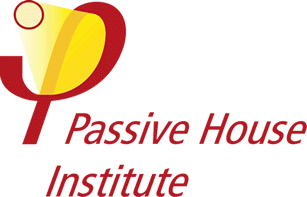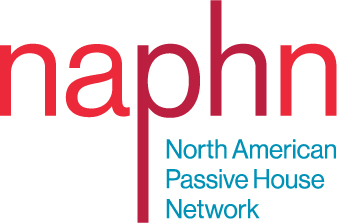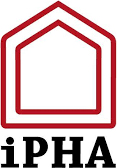The 2015 North American Passive House Conference & Expo will be held in Vancouver, British Columbia, October 1st and 2nd
(Press release, NAPHN, Vancouver, British Columbia (PRWEB) November 06, 2014)
 The North American Passive House Network (NAPHN) is pleased to announce that the 2015 NAPHN Conference & Expo (NAPHN15) will take place October 1st and 2nd in Vancouver, Canada. It will follow the success of the NAPHN14 conference held this past September in Portland, Maine, which brought together a global community of Passive House designers, builders, suppliers, government officials, and policy analysts. NAPHN plans to increase both the scope and scale of the event in 2015, to be hosted by regional NAPHN member CanPHI West.
The North American Passive House Network (NAPHN) is pleased to announce that the 2015 NAPHN Conference & Expo (NAPHN15) will take place October 1st and 2nd in Vancouver, Canada. It will follow the success of the NAPHN14 conference held this past September in Portland, Maine, which brought together a global community of Passive House designers, builders, suppliers, government officials, and policy analysts. NAPHN plans to increase both the scope and scale of the event in 2015, to be hosted by regional NAPHN member CanPHI West.
“Holding NAPHN15 in Canada, and specifically Vancouver, demonstrates that Passive House is a continental and global effort,” said Bronwyn Barry, co-President of NAPHN.
 The CanPHI West team, who produced the widely attended Passive House North conference in 2013, promises a program that includes new partners in building science and policy, and world class education and networking opportunities. Vancouver, the City of Glass on the Pacific, has mandated carbon neutral new buildings by 2020 and currently accepts Passive House as an alternative to LEED certification in rezoning and development approvals. Numerous Passive House projects are under construction and building permit applications for two large mixed-use buildings are currently being filed. Post-conference project tours in Vancouver and Whistler/Pemberton will showcase Passive House projects including a prefabrication plant and a public recreation facility. Courses, meetings, and social events planned before and after the two day conference aim to please sustainable building professionals and enthusiasts.
The CanPHI West team, who produced the widely attended Passive House North conference in 2013, promises a program that includes new partners in building science and policy, and world class education and networking opportunities. Vancouver, the City of Glass on the Pacific, has mandated carbon neutral new buildings by 2020 and currently accepts Passive House as an alternative to LEED certification in rezoning and development approvals. Numerous Passive House projects are under construction and building permit applications for two large mixed-use buildings are currently being filed. Post-conference project tours in Vancouver and Whistler/Pemberton will showcase Passive House projects including a prefabrication plant and a public recreation facility. Courses, meetings, and social events planned before and after the two day conference aim to please sustainable building professionals and enthusiasts.
“Vancouver is a leader in sustainable practices,” explains CanPHI West President, Rob Bernhardt. “The educational and networking opportunities NAPHN15 will offer helps not only propel Vancouver forward, but will enable the efforts of everyone attending, from near and far, to pursue a low-carbon, high-performance future.”
The conference will be held at the Hyatt Regency in downtown Vancouver, itself a leader in sustainability. The Hyatt Regency is minutes from beaches, shopping, restaurants, the sea wall, cycle tracks and transit options to numerous destinations.
CanPHI West and NAPHN will continue to provide updates as the event approaches, and encourages those interested to save the dates.
See images from the NAPHN14 Conference & Expo in Portland, Maine.
The Canadian Passive House Institute West (CanPHI West) is a registered not-for-profit providing Canadians with the knowledge, tools, networks and confidence to design and construct buildings which meet the world’s highest level of energy efficiency, the international Passive House Standard. CanPHI West actively trains and connects people and organizations who wish to radically improve the energy efficiency of new and existing buildings in Canada, and support Canadian industry in developing building materials and components of the highest performance and quality. CanPHI West is an affiliate of the International Passive House Association. See http://www.canphi.ca
The North American Passive House Network (NAPHN) shares up-to-date news, events, and other knowledge resources related to Passive House across North America. NAPHN helps promote Passive House across the continent. Membership now includes: Canadian Passive House Institute West, New York Passive House, Passive House California, passivhausMAINE, Passive House New Mexico, Passive House Western Pennsylvania, and Passive House Northwest. See http://www.naphnetwork.org
Passive House is an international building standard developed by the Passive House Institute (PHI), located in Darmstadt, Germany. Building to the Passive House Standard reduces our buildings’ operational energy demand to an optimized extent through passive measures and components such as insulation, airtightness, heat recovery, solar heat gains, solar shading and incidental internal heat gains. Passive House reliably delivers up to approximately a 90% reduction in heating and cooling demand and up to a 75% reduction in overall primary energy demand when compared to our existing building stock. Passive House buildings affordably and predictably provide the most resilient, comfortable and healthy interior environments. See http://www.passivehouse.com.
———————————————————————————————————————————————————-

























